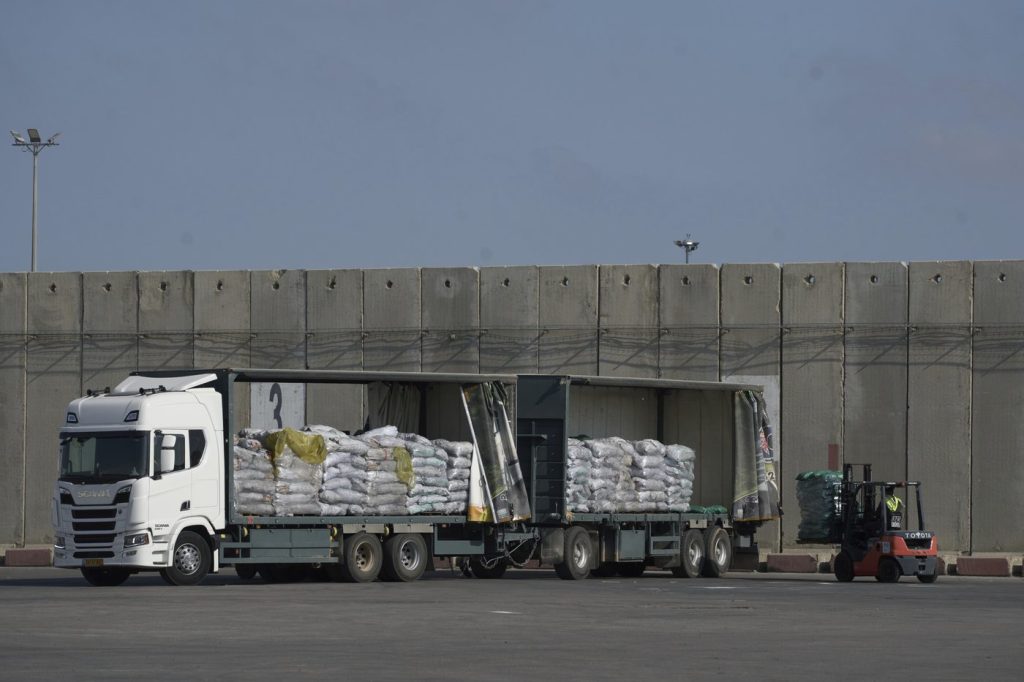Aid organizations have successfully delivered humanitarian aid to Gaza via approximately 90 trucks, with a total of nearly 200 trucks having crossed into the region since Israel began permitting limited supplies earlier this week, as reported by the United Nations on Thursday. According to Jens Laerke, spokesperson for the U.N. Humanitarian agency OCHA, the trucks transported vital supplies including medicine, wheat flour, and nutritional provisions. However, several significant challenges have impeded the distribution of this aid, including security concerns, the risk of looting, and coordination issues with Israeli authorities, Laerke added.
Under mounting international pressure, Israel has allowed dozens of aid trucks to enter Gaza after a blockade that lasted nearly three months, during which food, medicine, and fuel were restricted. Despite these deliveries, many supplies remain stranded on the Gaza side of the Kerem Shalom crossing in Israel.
In another incident, Yemen's Iran-backed Houthi rebels launched two missiles targeting Israel, with the attacks occurring hours apart on Thursday. Each missile launch triggered nationwide air raid sirens across Israel. The Israeli military confirmed that both missiles were intercepted, and there were no immediate reports of casualties or damage. An Associated Press reporter in central Israel noted hearing a loud explosion, which could possibly have been caused by an interceptor missile. Israeli police are currently conducting searches in the Jerusalem area for any debris from the intercepted missiles.
The Houthis have carried out multiple missile attacks aimed at Israel and have also threatened international shipping in the Red Sea, framing their actions as retaliation for Israel's offensive against Hamas in Gaza. Most of the vessels targeted have had no connection to Israel or the ongoing conflict. Earlier this month, the United States halted a demanding bombing campaign against the Houthis after the rebels stated they would cease attacks on ships; however, this agreement did not extend to attacks on Israel.
Additionally, France has condemned a shooting outside the Jewish Museum in Washington, D.C., which resulted in the deaths of two staff members of the Israeli Embassy. France's foreign minister, Jean-Noël Barrot, labeled the killings as an "abhorrent act of antisemitic barbarity." In a message posted in English on social media platform X, Barrot expressed that "nothing can justify such violence" and shared his condolences with the victims' loved ones, colleagues, and the State of Israel.
This series of incidents illustrates the ongoing tensions in the region, highlighting the complexities surrounding humanitarian efforts in conflict zones and the broader geopolitical implications of military actions and diplomatic relations.










